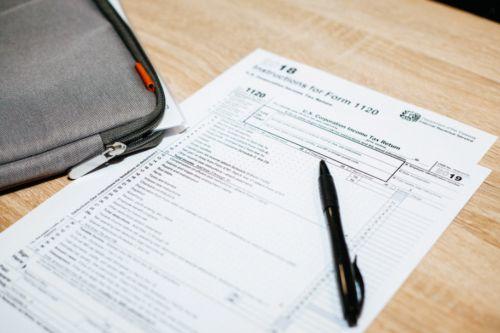Tara’s Tax Tips: IRS issues new guidance on Employee Retention Credit and PPP loans

I’m Tara Fisher, Becker’s resident tax expert. The IRS recently released new guidance on Employee Retention Credit and PPP loans in Notice 2021-20, which I’ll explain in this article. Let’s get started!
The IRS has issued Notice 2021-20 to provide guidance regarding the Employee Retention Credit, and Revenue Procedure 2021-20 to provide new guidance regarding PPP loans.
Notice 2021-20, Employee Retention Credit
Notice 2021-20 explains when and how employers that received a Paycheck Protection Program (PPP) loan can claim the Employee Retention Credit. It also provides guidance on eligible employers, what constitutes a suspension of trade or business operations, what constitutes a significant decline in gross receipts, what items are considered qualified wages and the maximum amount of an eligible employer’s Employee Retention Credit.
Employers who paid qualified wages after March 12, 2020 and before January 1, 2021, and who experienced suspension of operations or a decline in gross receipts can claim the Employee Retention Credit for 2020. The credit is equal to 50 percent of qualified wages paid up to $10,000 per employee, which includes qualified health plan expenses.
The Taxpayer Certainty and Disaster Tax Relief Act of 2020 amended the CARES Act to permit eligible employers who received a PPP loan to claim the Employee Retention Credit, as long as the same wages are not counted both for forgiveness of the PPP loan and computation of the Employee Retention Credit.
Section III of Notice 2021-20 provides guidance on several topics in a Q/A format. These topics include:
- Eligible employers
- Aggregation rules
- Governmental orders
- Full or partial suspension of trade or business operations
- Significant decline in gross receipts
- Maximum amount of employer’s Employee Retention Credit
- Qualified wages
- Allocable Qualified Health Plan expenses
- Interaction with Paycheck Protection Program (PPP) loans
- Claiming the Employee Retention Credit
- Special Issues for Employees: Income and deduction
- Special Issues for Employers: Income and deduction
- Special Issues for Employers: Use of third-party payers
- Substantiation requirements
An example of the Q/A format is highlighted in the except below:
Eligible Employers
Question 1: What is a “trade or business” for purposes of the Employee Retention Credit?
Answer 1: For purposes of the Employee Retention Credit, “trade or business” has the same meaning as when used in section 162 of the Code other than the trade or business of performing services as an employee. Under section 162, an activity does not qualify as a trade or business unless its primary purpose is to make a profit and it is carried on with regularity and continuity. The facts and circumstances of each case determine whether an activity is a trade or business. A taxpayer does not necessarily need to make a profit in any particular year in order to be in a trade or business as long as a good faith profit motive is present.
For purposes of the Employee Retention Credit, a tax-exempt organization described in section 501(c) of the Code that is exempt from tax under section 501(a) of the Code is deemed to be engaged in a “trade or business” with respect to all operations of the organization.
Revenue Procedure 2021-20
The IRS also issued Revenue Procedure 2021-20 to provide a safe harbor for businesses who received PPP loans and did not deduct certain expenses on their 2020 tax return because such deductions were precluded prior to the passage of the Consolidated Appropriations Act. These taxpayers can now deduct such expenses on their 2021 return, as long as they meet certain criteria.
PPP loans were authorized under the CARES Act to help provide funds to businesses adversely affected by COVID-19. The CARES Act outlined that these loans could be forgiven if the business used the loan proceeds to pay certain eligible expenses, such as wages and benefits for their employees.
For tax purposes, the CARES Act allowed businesses to exclude the debt forgiveness from gross income. As a result, the IRS issued guidance stating that businesses could not deduct expenses that were paid with the tax-exempt income because it would result in a double tax benefit.
These rules were retroactively amended by tax relief legislation that passed in December 2020. The new law states that, not only is the amount of the debt forgiveness excluded from a PPP recipient’s gross income, no deduction is denied because of the exclusion from gross income. Further, no tax attribute is reduced, and no basis increase is denied.
Rather than requiring that a taxpayer file an amended return for 2020, the IRS is permitting the deduction of eligible expenses on the taxpayer’s 2021 return. The safe harbor rules and criteria for making this election are outlined in the revenue procedure.
Keep visiting the Becker blog for the latest tax updates that you need to know.
Tara Fisher has been practicing tax for over 20 years. Her professional background includes working for the U.S. Congress Joint Committee on Taxation, the national tax practice of PricewaterhouseCoopers, the University of Pittsburgh, and American University in Washington D.C. She is a licensed CPA and holds both an undergraduate and graduate degree in accounting from the University of Virginia.
The content contained in this article is for informational purposes only and is not tax advice. You should consult a tax advisor for advice applicable to your situation.









